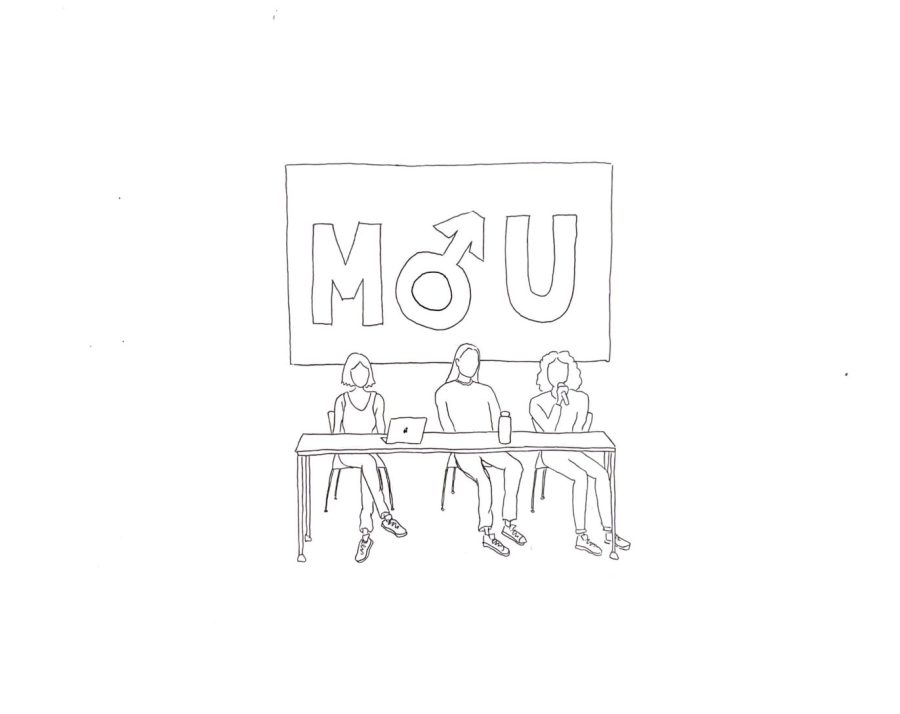Is MOU missing men? Urban reflects on MOU gender dynamics
Urban’s Month of Understanding (MOU) events are hosted by MultiCulti during the months of January and February. These events aim to uplift voices of marginalized communities at Urban and educate the broader community. MultiCulti is comprised of all affinity space leaders, a small number of open members and the Dean of Equity and Inclusion, Jason Ernest Feldmen. While MOU events are open and advertised to the whole school, female and non-binary students dominate the gender demographic of participants, panelists and MultiCulti members. Due to this observed lack of male-identifying participants, students have been reflecting on why the student participation amongst male-identifying students was so low.
“I feel like MOU events are mostly all girls,” said Camillia Amiri ’23, a MENA co-leader. “I do occasionally see male-identifying people at MOU events, but they’re definitely in the minority. I don’t frequently see a ton of guys there,” said Amiri.
Max Lalezari ‘24 said that while he has attended a few MOU events this year, he does not see that to be highly common amidst most male students at Urban. Lalezari said, “I definitely don’t see [male-identifying students] as much as [female identifying] students.” When asked why, he said, “I think that girls just care more about the inequalities in our school and want to learn about how [they] can help.”
Lily Halbert-Alexander ‘24, a Jew Crew co-leader, believes the consistent participation of female and non-binary students is tied to the possible awareness that comes with having an oppressed identity. “One thing I sometimes consider is that femininity, as an identity, is something that has to be on your mind a lot for safety or [other ways] it impacts your life,” Halbert-Alexander said. “So when you’re asked to go to events about other people’s identities or intersecting identities, you’re more ready to just show up for that and hear about other people’s experiences.”
On the other hand, Halbert-Alexander sees the inverse of this innate social awareness, due to oppression, to be why there are so few male students at MOU events. “Maybe men who don’t have the experience of having some part of their identity on trial all the time don’t feel that pull to attend MOU events of identities different from theirs.”
It is common for attendees to look for events that speak to their own identities. “I went to events that were more [associated] with my personality and identity,” said Lalezari. “I was looking to see how other people with similar identities to me reacted [in discussion], or how they felt about Urban.”
However, some argue that MOU should be an opportunity to learn from others with differing identities and experiences. “I’ve been trying to go to ones that I don’t relate to so [I] can learn more from them,” said Emme Adamick ‘24. “I think that is what the point of MOU is. I feel like people should go to something that they don’t identify with,” she said.
Female-identifying students have expressed interest for more participation of male-identifying students in coming years of MOU. Sephora Haileselassie ‘24 thinks that more participation from male-identifying students could beneficially expand MOU discussions. “I think having more male-identifying people just in the room would be nice to hear different perspectives,” she said.
Amiri believes more male-identifying students should participate in these events to diversify the voices we are hearing from, but also so they can show up to support and learn from their peers. “I feel like sometimes, Urban students can be like, ‘oh, I go to Urban. I’m super educated, like, I know all about these other people,’” said Amiri. “But, you should go to those events and learn more about students’ perspectives. Because even though [student organizers and panelists] are going to class with you, you can’t see everything.”


